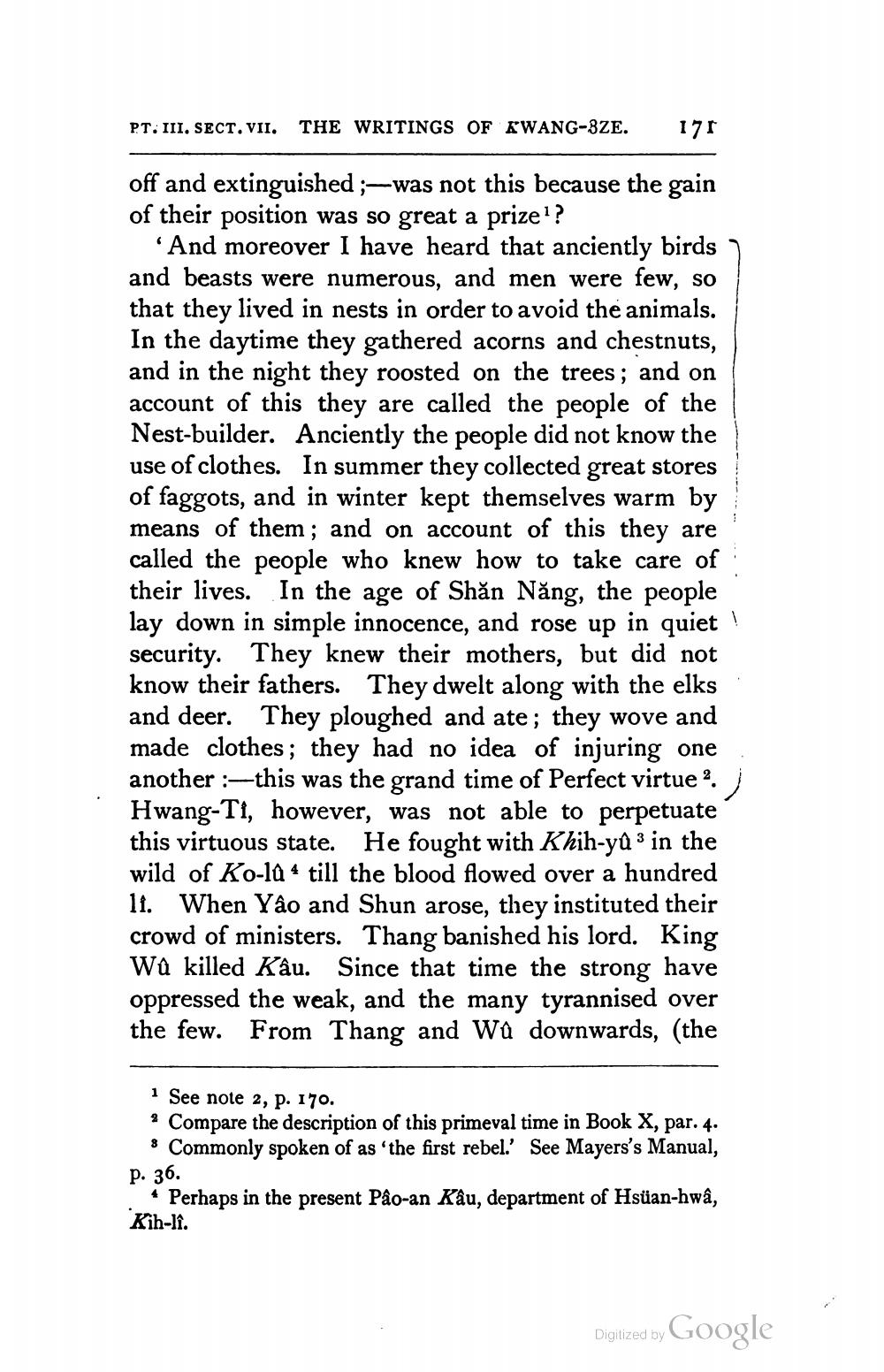________________
PT. III. Sect.viI. THE WRITINGS OF KWANG-BZE.
171
off and extinguished ;-was not this because the gain of their position was so great a prize'?
And moreover I have heard that anciently birds and beasts were numerous, and men were few, so that they lived in nests in order to avoid the animals. In the daytime they gathered acorns and chestnuts, and in the night they roosted on the trees; and on account of this they are called the people of the Nest-builder. Anciently the people did not know the use of clothes. In summer they collected great stores of faggots, and in winter kept themselves warm by means of them; and on account of this they are called the people who knew how to take care of their lives. In the age of Shăn Năng, the people lay down in simple innocence, and rose up in quiet! security. They knew their mothers, but did not know their fathers. They dwelt along with the elks and deer. They ploughed and ate; they wove and made clothes; they had no idea of injuring one another :—this was the grand time of Perfect virtue 2. Hwang-Ti, however, was not able to perpetuate this virtuous state. He fought with Khih-yû 3 in the wild of Ko-lů 4 till the blood flowed over a hundred 11. When Yâo and Shun arose, they instituted their crowd of ministers. Thang banished his lord. King Wů killed Kâu. Since that time the strong have oppressed the weak, and the many tyrannised over the few. From Thang and Wů downwards, (the
1 See note 2, p. 170. . Compare the description of this primeval time in Book X, par. 4. 8 Commonly spoken of as 'the first rebel.' See Mayers's Manual,
P. 36.
* Perhaps in the present Pâo-an Kâu, department of Hsüan-hwâ, Kih-li.
Digitized by U
Digitized by Google




